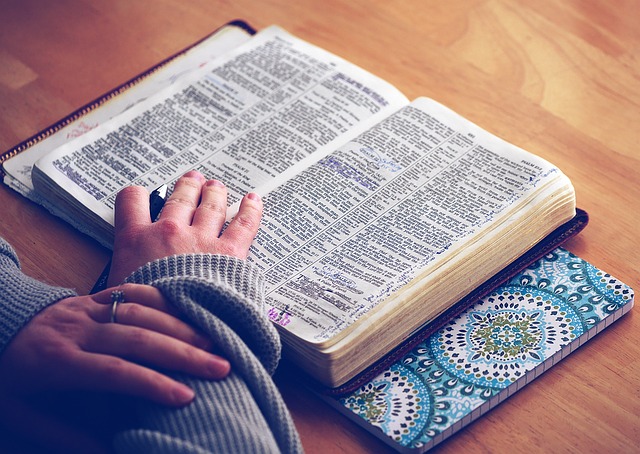Why Are There Prostitutes, Seducers And Adulteresses In Jesus' Ancestry?

In spite of the huge modern interest in family history thanks to the ease with which we can research it online, we aren't very interested in the lists of names in the Bible. All that "so and so begat such and such" leaves us cold.
Back in Bible times, though, it was different: people were fascinated by where they came from because it told them who they were.
At the beginning of Matthew's Gospel there's a genealogy that it's fair to say most churches skip over at Christmas. It traces Jesus' ancestry all the way back to Abraham. Right at the end, Mary is mentioned. But what's unusual about it is that before that it includes four women. Each of them is out of place in what you'd expect to find in the descent of a king, because each of them has a question mark over their sexual behaviour.
Tamar was the mother of Perez, whose father was Judah – and Judah was her own father in law. Genesis 38 tells of how she was married to two of Judah's sons in succession, Er and Onan, both of whom died. But rather than giving her to his third son, Shelah – the honourable thing for her at the time – he refuses. So she disguises herself as a prostitute, has sex with Judah and bears twins to him. Outraged by her pregnancy he orders her to be burned to death, whereupon she proves he is the father by the seal, cord and staff he has left with her. "She is more righteous than I," he confesses.
Rahab was the mother of Boaz. She was the prostitute in Joshua 2 who hid the spies who came to Jericho to reconnoitre the Israelite invasion. When the city falls, she and her family are the only ones spared (Joshua 6).
Ruth was the mother of Obed. She was a Moabitess who married an Israelite who had gone there fleeing famine. After her husband and his brother and father died, she returned to Israel with her mother-in-law Naomi. She gains the attention of her husband's kinsman Boaz, and in an encounter that's sexually charged – though it isn't clear that sex took place – he agrees to marry her. She is portrayed as a woman of "noble character", but she is a Moabitess – and during the Exodus it is the Moabite women who tempted male Israelites to sin (Numbers 25:1).
Bathsheba is not given her name in Matthew's account; she is the mother of Solomon and "had been Uriah's wife". She had been seen bathing by King David; he seduces her and has her husband killed in order to possess her (2 Samuel 11).
So what is Mary doing in a list like that?
There is nothing questionable about her behaviour. Joseph is told in a dream that "what is conceived in her is from the Holy Spirit" (Matthew 1:20). And Luke makes it clearer than Matthew that this is a virgin birth.
But what seems possible is that the circumstances of Jesus' birth were so irregular that rumours followed her throughout her life and may have coloured people's attitude to Jesus. In Mark 6:3 he is called "Mary's son" rather than Joseph's. Some scholars think that might reflect doubts about his legitimacy (though others disagree). And in John 8:41 "the Jews" who are arguing with him say, "We are not illegitimate children." Was this a reference to speculation about his birth?
There's even a later story, from an anti-Christian writer called Celsus, that Jesus was fathered on Mary by a Roman soldier named Panthera. This is obviously a legend aimed at discrediting Mary, however.
So why did Matthew include these other women in his list of Jesus' ancestors? The answer is that each of them may have behaved questionably, but God used them in extraordinary ways. Tamar was more righteous than Judah, who would give his name to an entire nation. Rahab helped ensure the conquest of the whole of what would be Israel. Ruth was a Gentile, but a virtuous woman and the grandmother of one of Israel's two greatest kings. And Bathsheba was the mother of the other.
It's as though Matthew is saying, by emphasising their stories: "If you think Jesus' birth counts against him, look at what God has done with mothers like Mary in the past. Don't limit God's grace or power. Mary is a woman of God, and God has done great things through her."
And while there is only one Mary, the mother of the Messiah, there are many, many Christians who can read the stories of how God uses ordinary people with shadowed pasts, and be deeply grateful.
Follow Mark Woods on Twitter: @RevMarkWoods











